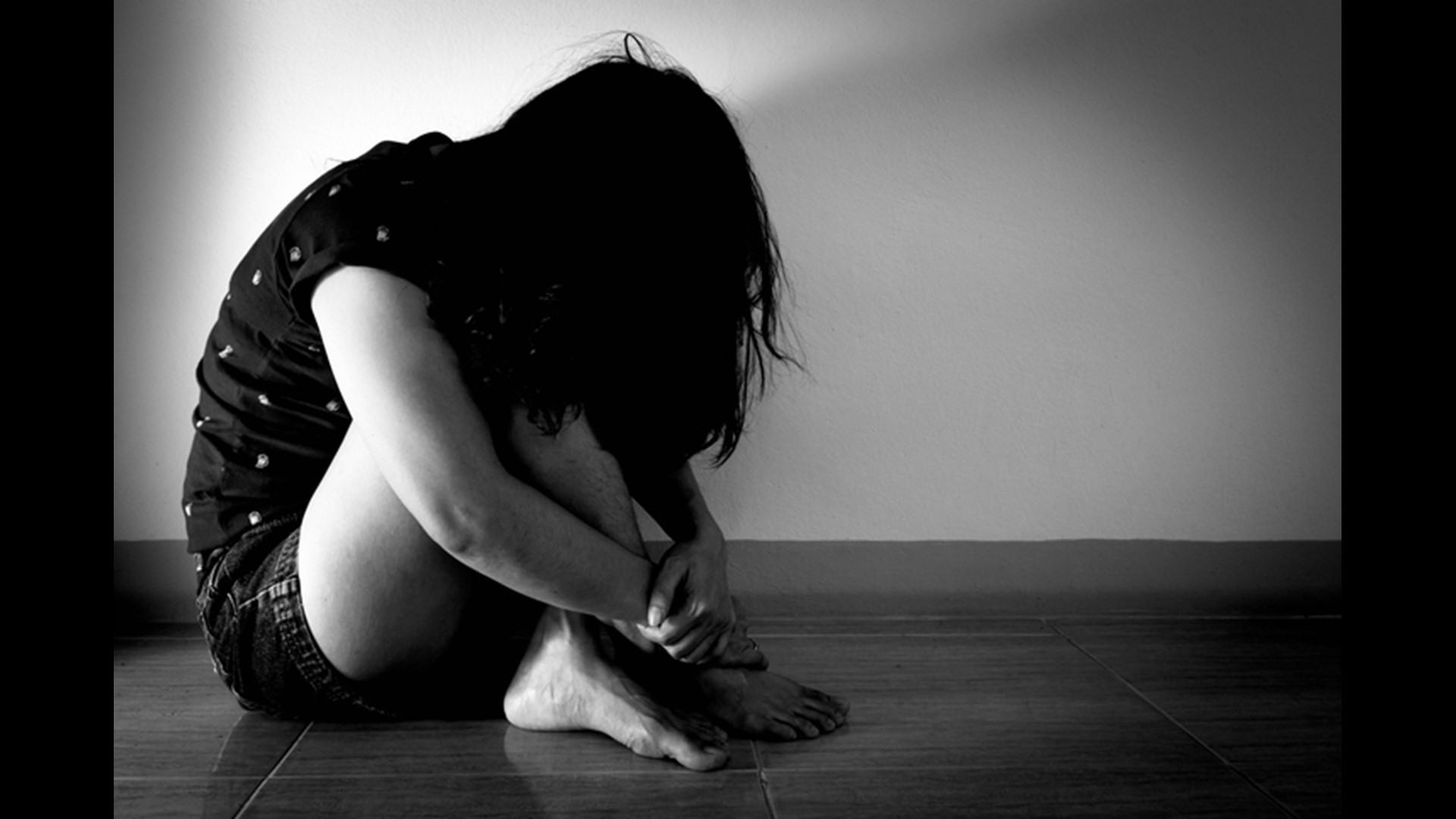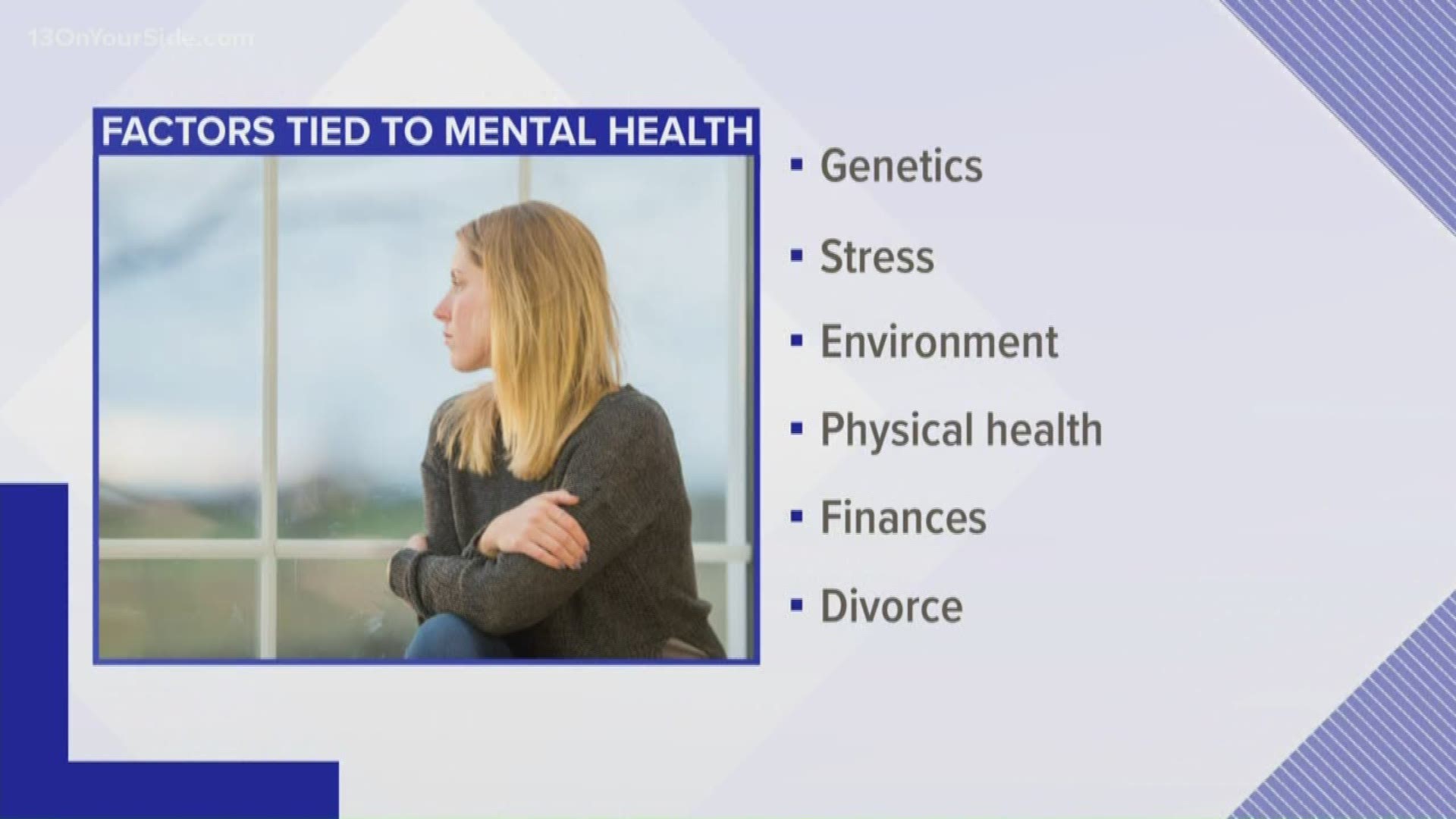GRAND RAPIDS, Mich. — People across the nation remain on lock-down as they limit social interaction to slow the spread of the Coronavirus (COVID-19). According to the John Hopkins University data dashboard, more than 5,300 people have died in the United States, and the death toll is expected to soar much higher.
COVID-19 may be deadly, but many mental health professionals fear the stress, anxiety, and isolation that has ensued are almost as dangerous as the virus itself.
“I think people are noticing just an exacerbation in mood. We're all struggling, at least in part right now, with all the changes that are happening around us, as well as the fear of the unknown – how know how long is this going to last? What's going to happen? Who do I know that's going to be affected or could it be me?” says Dr. Lyndsay Volpe-Bertram, a clinical psychologist with Spectrum Health. “I think for those folks who might already kind of have something brewing in terms of a mental health condition, it could be a very dangerous thing.”
Volpe-Bertam says social isolation has already induced a lot of anxiety in the U.S. population. She believes the mental health effects of the pandemic will be more wide-spreading than anything else.
“You know not all of us are physically going to get this virus, but all of our mental health has been affected at least in part. I don't think I've talked to anyone yet who hasn't at least identified some signs of anxiety, and maybe it's not a clinically diagnosable, anxiety, but I don't think I've talked to anybody who said, oh yeah I'm perfectly fine with everything,” she says.
Right now, mental health advocates are actively discussing how best to keep patients safe.
“So the community is definitely rallying to say how can we be supporting these patients, how do we not let them go to that place [emergency rooms] and how do we keep them both physically and emotionally healthy. There are lots of conversations happening to help support that,” she says.
While exact numbers are hard to track some of the nation’s leading suicide crisis hotlines are reporting as much as a 300% surge in calls since the COVID-19 pandemic began. People with existing mental health issues are perhaps the most vulnerable.
"Things like depression, anxiety, are probably two of the more common ones,” says Volpe-Bertram. “They already struggle with isolation. They often have a difficult time connecting with other people or they view themselves as burdens and don't want to share what they're going through. They might worry about how other people think about them and so they're less likely to reach out for social support.”
She says to compound matters social distancing is preventing those people from doing the very things that could help most.
“The things we would ask them to do as psychologists and therapists would be to get out and get social connection, you know, leave your house go do things to try to have fun. You know, insert some novelty into your day. And they're not able to do that right now,” she said.
She says extreme suicidal thoughts could become problematic in people who live alone and already lack social support systems.
“It is scary to think they are in those situations and they are just holding onto those dark things on their own," she says while encouraging people to understand they are not alone.
“There are good resources, in terms of the national suicide hotline. There's a National Crisis Text Line for somebody who might not be comfortable making a phone call,” said Volpe-Bertram. “If they are in crisis, we absolutely want them to reach out to a mental health professional. They can reach out to any one of the behavioral health support lines, whether it's Community Mental Health or Network180 or reaching out to a therapist that they already have.”
Meanwhile, she recommends people actively take steps to protect their mental health. Following are some effective strategies from the National Suicide Prevention Lifeline:
Coping Tips
People that are feeling emotional distress related to COVID-19 can take action to help support themselves and others.
- Set a limit on media consumption, including social media, local or national news.
- Stay active. Make sure to get enough sleep and rest. Stay hydrated and avoid excessive amounts of caffeine or alcohol. Eat healthy foods when possible.
- Connect with loved ones and others who may be experiencing stress about the outbreak. Talk about your feelings and enjoy conversations unrelated to the outbreak.
Get accurate health information from reputable sources. For health information about COVID-19, please contact the Centers for Disease Control at cdc.gov, your local healthcare provider, or your local 211 and 311 services, if available.
The National Disaster Distress Helpline is available to anyone experiencing emotional distress related to COVID-19. Call 1-800-985-5990 or text TalkWithUs to 66746 to speak to a caring counselor.
If you’re experiencing emotional distress related to COVID-19, please call the National Suicide Prevention Lifeline or your local crisis line.
For coping tools and resources, visit the Lifeline website at suicidepreventionlifeline.org or Vibrant Emotional Health’s Safe Space at vibrant.org/safespace.
RELATED VIDEO:
MORE COVID-19 NEWS:
►Make it easy to keep up to date with more stories like this. Download the 13 ON YOUR SIDE app now.
Have a news tip? Email news@13onyourside.com, visit our Facebook page or Twitter. Subscribe to our YouTube channel.


